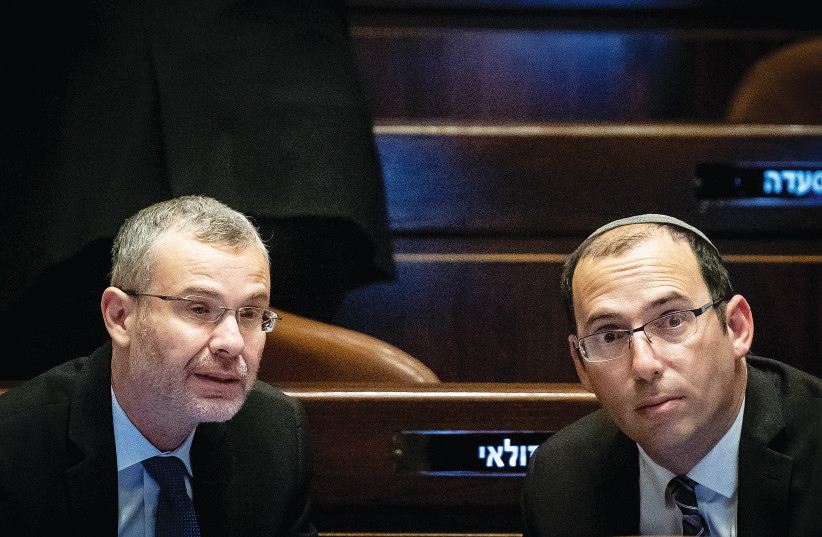A bill to regulate the reasonableness clause will be placed before the Knesset Constitution, Law and Justice Committee on Wednesday, the committee said Tuesday in a statement. It will be the first attempt to advance judicial reform legislation since it was frozen in late March.
The bill would amend Basic Law: The Judiciary with a provision that would prevent the Supreme Court and other judicial authorities from passing judgments based on the reasonableness clause against the decisions of the prime minister, cabinet ministers or other elected officials.
Protest group leaders on Tuesday said they would give a press briefing on Wednesday evening regarding the legislation. That raised the specter of renewed mass protests that took place for three months until Prime Minister Benjamin Netanyahu announced a cessation of trying to advance the legislation before the Knesset’s spring recess.
The unreasonableness clause is a common law principle that allows judicial review of administrative decisions that go beyond the scope of what a responsible and reasonable authority would undertake.
Reasonableness is one of the least contested provisions of the reform
The matter of reasonableness is regarded by some legal experts as one of the least contested provisions of the judicial reform that was proposed by Justice Minister Yariv Levin in January.

During negotiations between the coalition and the opposition at the President’s Residence on a reform framework, multiple reports indicated that the sides were close to agreement on the reasonableness clause.
The coalition would break the freeze on legislative action and move ahead with a reasonableness bill, as well as a bill on the status of government legal advisers, The Jerusalem Post reported Monday.
The coalition and the opposition have withdrawn from negotiations over a dispute regarding the makeup of the Judicial Selection Committee. An opposition member was elected to the panel last Wednesday, but the coalition has called for it to convene to appoint judges.
The fate of the Judicial Selection Committee is considered by many legal experts to be the most contentious judicial reform issue. A bill to change the composition and voting rules of the Judicial Selection Committee was placed on the Knesset table for final reading in March, but it was frozen.
Eliav Breuer contributed to this report.
